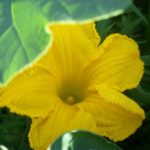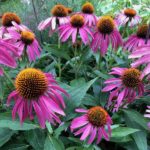Happy New Moon – February 20, 2023
Creating Order
 Judith Flander’s book, A Place for Everything: The Curious History of Alphabetical Order ,is a fascinating read touching on world views and our human need to categorize things. It’s a history of the alphabet, as well as dictionaries, encyclopedias, and the birth of alphabetical order. Until this book crossed my path, I never thought much about this seemingly logical way to categorize items. (Things that start with “A” come first, followed by “B” and “C” and on from there.) We are so used to organizing information in this way that it feels self evident. But if you assume that it was always so, you’d be wrong. Humans used many other methods for categorizing written materials. These included perceived importance in subject matter, rank of the author, and geographic location.
Judith Flander’s book, A Place for Everything: The Curious History of Alphabetical Order ,is a fascinating read touching on world views and our human need to categorize things. It’s a history of the alphabet, as well as dictionaries, encyclopedias, and the birth of alphabetical order. Until this book crossed my path, I never thought much about this seemingly logical way to categorize items. (Things that start with “A” come first, followed by “B” and “C” and on from there.) We are so used to organizing information in this way that it feels self evident. But if you assume that it was always so, you’d be wrong. Humans used many other methods for categorizing written materials. These included perceived importance in subject matter, rank of the author, and geographic location.
 Fluid Nature of Alphabets & Reality
Fluid Nature of Alphabets & Reality
Another point highlighted in the book is that early alphabets were fluid. Some letters came and went or were combined with others. And the letters in the alphabet varied by location. I can’t help but think that this fluidness reflects reality more than the static system we have now.
Obviously, there are advantages to a well-defined alphabet. But it is also indicative of western culture’s world view. Things need to be well defined, controlled, and fit into neat categories.
 Of course, there are many influences that shape a culture’s world view. But it feels possilbe that this nailed-down alphabet contributes to our culture’s forgetfulness of the magical nature of the green world. As alphabets and written language became more rigid, the mystery and fluidness began to disappear. And in this mindset, the green world appears messy, out of control, and even dangerous.
Of course, there are many influences that shape a culture’s world view. But it feels possilbe that this nailed-down alphabet contributes to our culture’s forgetfulness of the magical nature of the green world. As alphabets and written language became more rigid, the mystery and fluidness began to disappear. And in this mindset, the green world appears messy, out of control, and even dangerous.
Balancing Order & Flexibility
This standardization of concepts often presents the world as duality, where there is a right way and wrong way and not much in the center. And the right way may be based on entrenched dogma that it is hard to notice. An obvious example is with plants labeled as weeds. Many of these robust plants have nutritional and healing properties. Rather than thinking of them as organisms calling humans to wage chemical warfare, could we reframe them to simply “plants in the wrong place”?

Another example is how we define beautiful landscapes. Vegetable gardens or fields of wildflowers in front yards has been disallowed in many locations. That is slowly changing, but the idea that a beautiful landscape is sculpted (and often chemically controlled) is the norm.
Categorizing and labeling our world can also lead to stigmatizing people and concepts that don’t fit into the culture’s tidy definitions.
I’m not arguing that we change to a shape-shifting alphabet, but it is fun to imagine if we did. Would it lead to more creativity, acceptance of differences, and an understanding that the world is always in a state of flux?
A Mindfulness Challenge

A mindful way to work with this idea is to explore how language shapes the way we see the world. Begin to pay attention to how your world is ordered and categorized by words and concepts. In the gardening arena, consider these labels: weed, herb, organic, natural, edible, noxious, invasive, pest.
In my world I sometimes think of squirrels as pests when they are digging in my garden and running off with produce. If I step back, I can appreciate that they are living their lives and aren’t out to intentionally do me wrong.
And we can push this concept out into the rest of our lives as well. Notice if categorizing things is pushing you to consider only two rigid positions, rather than areas in between. We can intentionally seek places of connection, shape-shifting, and magic – in the garden and in our lives. Even though our western culture’s world view does not value these concepts, they are there when we look for them.
About this Lunar Blog Post Series

This article is part of my lunar blog series. New moon posts focus generally on garden and mindfulness related topics. Full moon posts focus on one of the plants featured in my book, Growing Mindful, Explorations in the Garden to Deepen Your Awareness. For more details on the lunar blog post series and to see past posts click here.
Notecards Available on Etsy
See my Etsy Store for a set of notecards based on my book, with illustrations beautifully created by Amy Calabrese. Click here to visit my Etsy Store




This is lovely, Joann. Just as your book shows us new ways to think about and relate to the natural world, this blog does also. Playing with the ways we have learned to organize and understand reality is a necessary exercise for the future. Thanks!
Thanks Tracy! I am fascinated by how language helps us understand our world, but can also get in the way of really perceiving it.